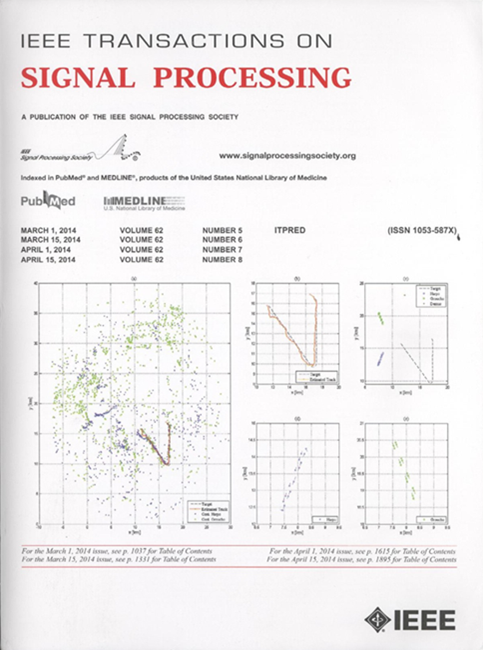慢马尔科夫链的自适应社会学习
IF 5.8
2区 工程技术
Q1 ENGINEERING, ELECTRICAL & ELECTRONIC
引用次数: 0
摘要
本文研究了基于部分信息观测的互联智能体协作跟踪动态状态的问题,其中状态遵循缓慢的有限状态马尔可夫链。虽然这个问题的集中化版本很好理解,但分散的设置值得进一步探索。本研究旨在证明分散式社会学习策略在罕见过渡状态下可以实现与最优集中式解决方案相同的错误概率标度律。为了研究这个问题,我们专注于自适应社会学习(ASL),这是一种针对非平稳环境开发的新策略,并分析了它在智能体的观察受隐藏的、缓慢的马尔可夫链控制时的性能。我们的研究有两个主要发现。首先,我们证明了ASL自适应性能与底层马尔可夫链的动力学密切相关,当马尔可夫链的平均漂移时间超过ASL自适应时间时,ASL稳态误差概率会消失。其次,我们导出了稀有跃迁状态下ASL稳态误差概率的封闭上界,表明其衰减与最优集中解相似。仿真验证了我们的理论发现,并提供了与现有策略的比较分析。本文章由计算机程序翻译,如有差异,请以英文原文为准。
Adaptive Social Learning for Slow Markov Chains
This paper studies the problem of interconnected agents collaborating to track a dynamic state from partially informative observations, where the state follows a slow finite-state Markov chain. While the centralized version of this problem is well understood, the decentralized setting warrants further exploration. This work aims to demonstrate that a decentralized social learning strategy can achieve the same error probability scaling law in the rare transitions regime as the optimal centralized solution. To study this problem, we focus on adaptive social learning (ASL), a recent strategy developed for non-stationary environments, and analyze its performance when the agents’ observations are governed by a hidden, slow Markov chain. Our study yields two key findings. First, we demonstrate that the ASL adaptation performance is closely linked to the dynamics of the underlying Markov chain, achieving a vanishing steady-state error probability when the average drift time of the Markov chain exceeds the ASL adaptation time. Second, we derive a closed-form upper bound for the ASL steady-state error probability in the rare transition regime, showing that it decays similarly to the optimal centralized solution. Simulations illustrate our theoretical findings and provide a comparative analysis with existing strategies.
求助全文
通过发布文献求助,成功后即可免费获取论文全文。
去求助
来源期刊

IEEE Transactions on Signal Processing
工程技术-工程:电子与电气
CiteScore
11.20
自引率
9.30%
发文量
310
审稿时长
3.0 months
期刊介绍:
The IEEE Transactions on Signal Processing covers novel theory, algorithms, performance analyses and applications of techniques for the processing, understanding, learning, retrieval, mining, and extraction of information from signals. The term “signal” includes, among others, audio, video, speech, image, communication, geophysical, sonar, radar, medical and musical signals. Examples of topics of interest include, but are not limited to, information processing and the theory and application of filtering, coding, transmitting, estimating, detecting, analyzing, recognizing, synthesizing, recording, and reproducing signals.
 求助内容:
求助内容: 应助结果提醒方式:
应助结果提醒方式:


